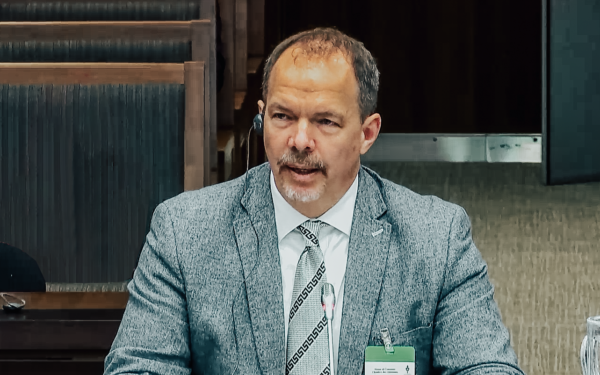Our internet is like an island community. We are connected to the mainland – the full internet – and in some communities in Canada we can connect with our local internet community if the bridge (our connection to the full internet) goes down. This happens thanks to internet exchange points, or IXPs.
Imagine for a moment that you live on Prince Edward Island. You live in a close-knit, vibrant community with access to almost everything you need – grocery stores, entertainment facilities, government services, friends and family. You are connected to the mainland by a bridge so if there is something your island community doesn’t offer, you can hop in your car and drive across the bridge to get it. But what if that bridge is knocked out? No big deal, you’ll go without your bi-weekly Costco run and you’ll be fine because your local grocery store has what you need.
This is what I want for the Canadian internet. In a way, our internet is like an island community. We are connected to the mainland – the full internet – and in some communities in Canada we can connect with our local internet community if the bridge (our connection to the full internet) goes down. This happens thanks to internet exchange points, or IXPs.
An IXP is like a hub, where local content and service providers connect directly to one another. It can begin small, with a few organizations connecting to one another within it, and as more and more plug in, this network grows. Your ISP can connect to government services, to your favourite content providers such as Netflix or Facebook, and to other important local businesses and services.
It’s like your community corner store that over time can grow to add a gas station, a coffee shop, a pharmacy, a movie theatre, and before you know it, it becomes a shopping plaza. In this case, your corner store, or IXP, has grown because of the many merchants and organizations that have grown within it. The more organizations who join, the better it is for the community. If something happens, perhaps an accidental fibre cut by a backhoe or a natural disaster, you lose access to the whole internet but not to those online services available within the IXP.
An IXP creates an internet ecosystem that provides, at a minimum, the essential services for the internet to work (such as resolving DNS, inter-connectivity etc.) and possibly value-added content providers such as Netflix or Google.
An IXP means a more resilient Canadian internet – a Canadian internet community that does not solely rely on transit in and out of the country. It means the best of both worlds: a local connection that creates an internet ecosystem with local content, as well as access to the wider internet for everything else found online. It’s just like a vibrant island community with a bridge to the mainland.
I encourage governments, businesses and ISPs to peer at IXPs across the country so that community members can access what they need, including essential services, in all circumstances
As an expert in developing innovative, leading-edge IT solutions, Jacques has established CIRA as a global leader among ccTLD registries. He has 25+ years of experience in the private and not-for-profit sectors and as CIRA’s CTO,is currently leading CIRA Labs, CIRA’s innovation hub and providing leadership and direction for the management and security of the .CA registry and its underlying DNS.
A visionary in the Internet community, Jacques led the development of CIRA’s Internet Performance Test, is an outspoken advocate for the adoption of IPv6 and represents the .CA registry internationally as a member of a variety of working groups and advisory groups. He is committed to the development of a new Canadian Internet architecture. He has served as the catalyst for the creation of a national Canadian IXP association, CA-IX, and is a member of the Manitoba Internet Exchange’s (MBIX) and the DNS-OARC Board of Directors. Jacques is also a member of ICANN’s Security and Stability Advisory Committee (SSAC).
Jacques holds an Electronics Engineering Technologist diploma from Algonquin College, is ITIL v3 Foundation certified and is a certified Agile ScrumMaster.




